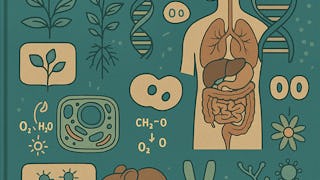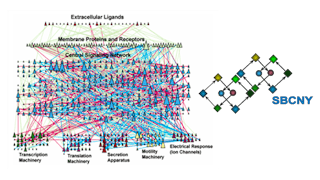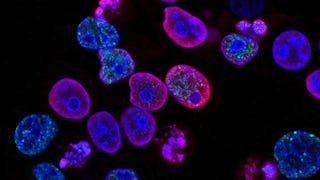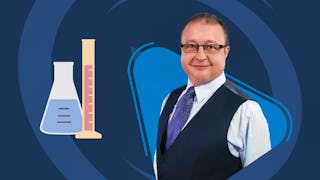Investigate the fundamental molecular and cellular mechanisms that govern life processes and human health. Build comprehensive understanding of how biological systems function at the molecular level to support clinical decision-making in nursing practice. Connect molecular principles to patient care scenarios through exploration of metabolism, genetics, and cellular communication pathways essential for understanding pharmacology and pathophysiology.



Molecular and Cell Biology
This course is part of Nursing Prerequisites: Essential Sciences for Future Nurses Professional Certificate


Instructors: Kevin Ahern, PhD
Access provided by Trybe
What you'll learn
Analyze protein structure-function relationships, enzyme mechanisms, and their roles in cellular processes and drug interactions
Evaluate cellular membrane structure, transport mechanisms, and organelle functions that maintain cellular homeostasis
Explain energy metabolism pathways including glycolysis, Krebs cycle, and electron transport chain
Apply knowledge of cell cycle regulation, DNA replication, transcription, and translation to understand genetic disorders and therapeutic targets
Skills you'll gain
Details to know

Add to your LinkedIn profile
September 2025
See how employees at top companies are mastering in-demand skills

Build your Basic Science expertise
- Learn new concepts from industry experts
- Gain a foundational understanding of a subject or tool
- Develop job-relevant skills with hands-on projects
- Earn a shareable career certificate from Lecturio

There are 4 modules in this course
Biochemistry is the study of biomolecules within living organisms. These compounds are found in every structure and process of every living species and appear to be key in the initiation and maintenance of life as we know it. In this course, the student will be introduced to the basic principles of biochemistry, including the most important concepts regarding carbohydrates, lipids, proteins, and nucleic acids. The levels of protein structures, gene expression, and basic metabolic functions will be covered as well. For optimal comprehension, the student will be required to be familiar with the basic notions of molecular and cellular biology.
What's included
72 videos12 readings73 assignments
Cellular functioning, movement, and communication rely on the cytoskeleton, a large internal network of protein filaments embedded in the cytosol and anchored to the cell membrane. In this course, the student will be introduced to the composition and function of the cytoskeleton, mechanisms of molecular transport, modes of cell communication, and second messengers. For optimal comprehension, the student will be required to be familiar with the basic concepts of college-grade biology and chemistry.
What's included
29 videos7 readings30 assignments
Cells, as the fundamental unit of living organisms, also have a life cycle. The cell cycle is a series of phases a cell undergoes to reach division into a new generation of cells and perpetuate its genetic material. Each phase encapsulates different processes required to ensure the daughter cells are well equipped to begin their own cycles after division. In this course, the student will be given a walkthrough of the phases of the cell cycle and all the processes that take place during each one, finishing with a discussion of diploid and haploid cell division. For optimal comprehension, the student will be required to be familiar with the basic concepts of college-grade biology and chemistry.
What's included
22 videos6 readings23 assignments
All organisms require energy to function. By utilizing energy, living organisms oppose the breakdown of their systems brought about by contact with the external environment. Energy is extracted from biomolecules by cells via catabolic pathways and cellular respiration. In this course, the student will be introduced to the cellular processes of energy synthesis in the form of adenosine triphosphate (ATP). For optimal comprehension, the student will be required to be familiar with the basic concepts of college-grade biology, chemistry, and physics, with an emphasis on the laws of thermodynamics.
What's included
25 videos8 readings27 assignments
Earn a career certificate
Add this credential to your LinkedIn profile, resume, or CV. Share it on social media and in your performance review.
Offered by
Why people choose Coursera for their career




Explore more from Health

Birla Institute of Technology & Science, Pilani

Icahn School of Medicine at Mount Sinai

University of Colorado Boulder

Lecturio
¹ Some assignments in this course are AI-graded. For these assignments, your data will be used in accordance with Coursera's Privacy Notice.

